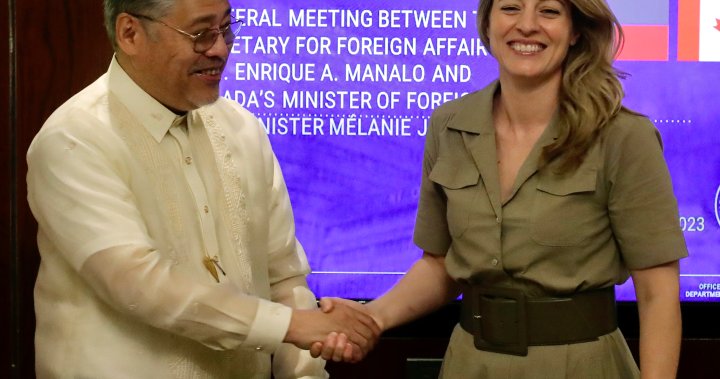Enrique Manalo, the foreign minister of the Philippines, is advocating for closer business and military ties with Canada in order to help maintain the post-war order in the Indo-Pacific region. He emphasized the importance of peaceful relations with both the U.S. and China, stating that the current world is more competitive and complex than it was after the Second World War. Manalo’s visit to Canada aimed to strengthen the growing relationship between the two countries, particularly in the wake of heightened tensions between the Philippines and China over maritime boundaries.
The Philippines views the 2016 ruling by a global court that Beijing’s claims over the South China Sea lack a legal basis as crucial in maintaining its sovereignty and securing the livelihoods of its fishers. The country has been vocal in calling out China for any violations of its territory, unlike some other Asian nations. Despite recent tensions, Manalo believes that frequent dialogue with Chinese officials is essential to managing relations. He highlighted China as the Philippines’ largest trading partner and expressed the need for adherence to international law and the rules-based order.
Canada’s Indo-Pacific strategy focuses on the Association of Southeast Asian Nations (ASEAN), a bloc of 10 nations experiencing strong economic growth. Manalo emphasized the potential for Canada and the Philippines to work together in various fields such as agriculture, infrastructure, education, and renewable energy. The Philippines is seen as a key partner in Canada’s regional strategy, with opportunities for economic and strategic cooperation. Recent agreements between Ottawa and Manila, including a defence agreement and collaboration on combating illegal fishing, demonstrate the growing partnership between the two countries.
Manalo highlighted the significant Filipino diaspora in Canada, expressing that common challenges are emerging as the world becomes more interconnected. Despite the positive view of Canada in the Philippines and strong economic growth in the country, Canada ranks low in relevance among ASEAN countries according to a recent survey. Manalo recommended seizing the current momentum to increase Canadian corporate presence in the Philippines and expand into neighboring countries. He emphasized that Canada has the opportunity to project its influence in the region by deepening its engagement with the Philippines and Southeast Asia as a whole.
The relationship between Canada and the Philippines has evolved significantly in recent years, with high-level meetings and agreements in place to enhance cooperation in various areas. Canada’s participation in ASEAN’s annual summit and potential involvement in joint military exercises with allies like Japan, Australia, and the U.S. could further strengthen regional ties and deter any breaches of international treaties by China. Manalo encouraged Canada to take advantage of the current positive momentum in bilateral relations to increase its presence in the Philippines and across Southeast Asia.
In conclusion, Manalo’s visit to Canada underscored the importance of strengthening ties between the Philippines and Canada in the context of the evolving global landscape. Both countries have the opportunity to deepen their economic and strategic cooperation, with the Philippines serving as a key partner for Canada’s regional strategy in Southeast Asia. By capitalizing on the growing momentum in bilateral relations and actively engaging in regional initiatives, Canada can play a significant role in maintaining peace and stability in the Indo-Pacific region.













